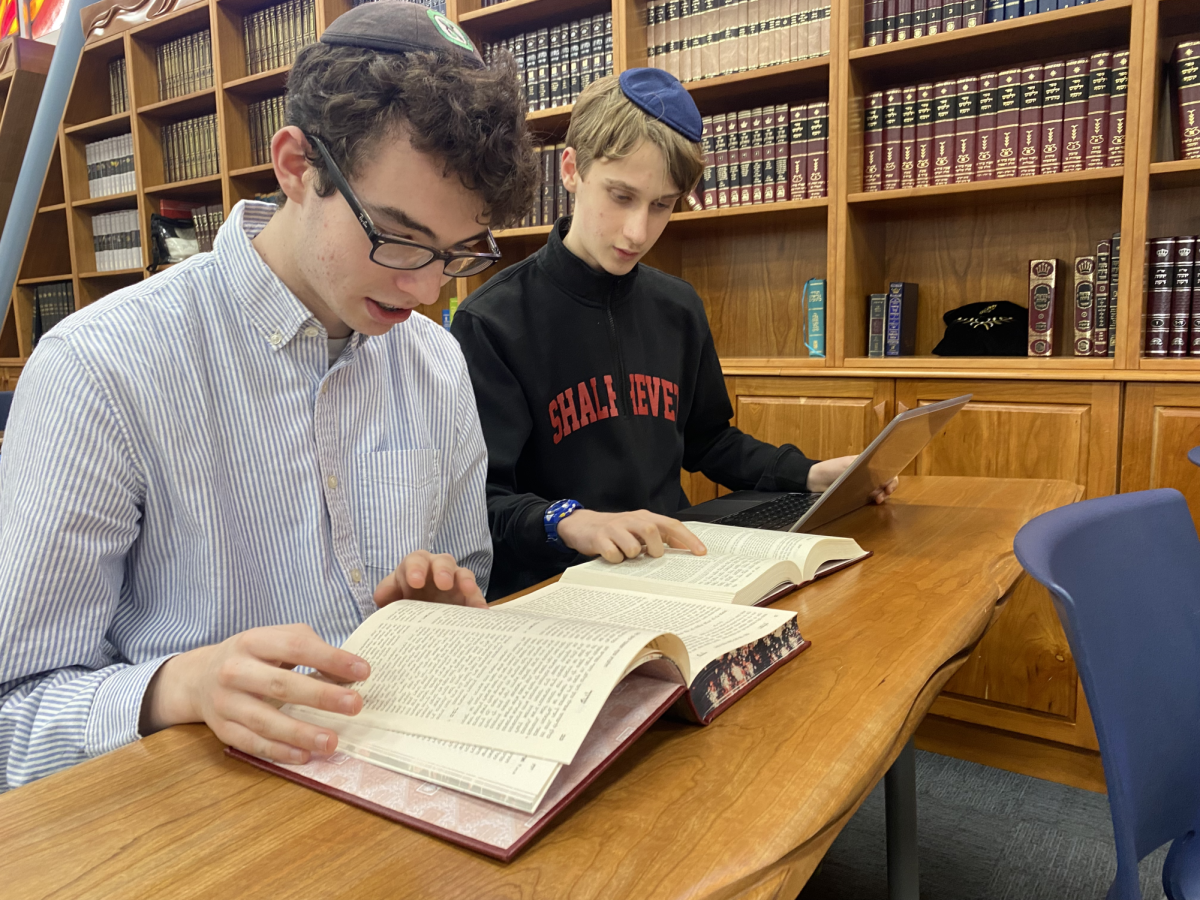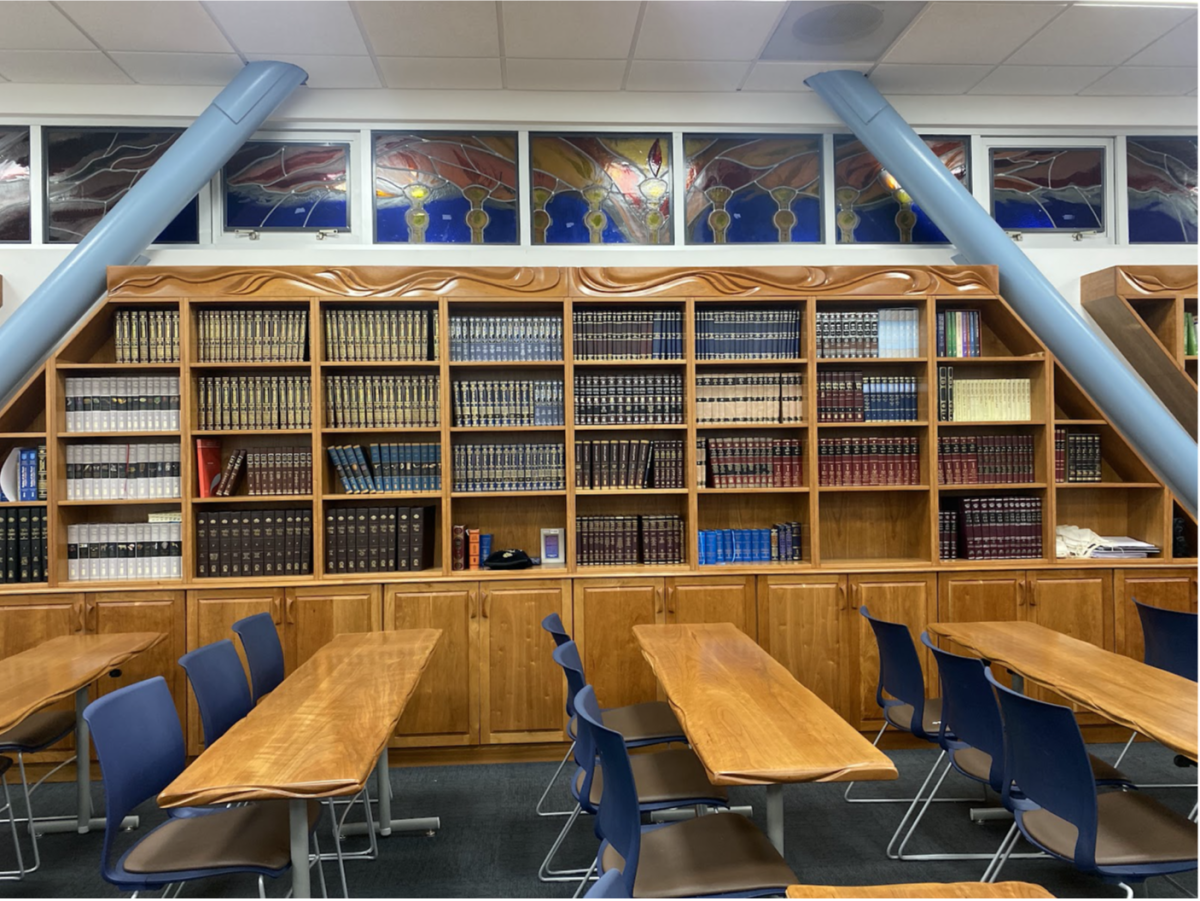After many whispered “happy birthdays,” hidden celebrations and confiscated cakes, Shalhevet has quietly begun to offer a more personal alternative to baking for friends than purchasing a cake from a bakery. Students are now allowed to bake in Shalhevet’s kitchen after school, as long as they give prior notice to Judaic Principal Rabbi Leubitz and all ingredients are kosher.
Sharing home-cooked food has always been prohibited by the student handbook because of the varying levels of kashrut students keep in their homes, though students are allowed to bring home-cooked food for themselves to eat.
The handbook states: “Students have the option to bring lunches from home, but all food brought to campus must be kosher. While the school will not inspect individual lunches or judge home kitchens, only kosher food from restaurants and bakeries with accepted supervision are allowed in school parties or celebrations.”
Now, however, instead of limiting shared food to pre-packaged food or food purchased from kosher restaurants or bakeries, students at least have the possibility of serving something they’ve made themselves.
Rabbi Leubitz explained that for food to be shared, it needs to adhere to the highest level of kashrut the school follows so that everyone can eat it. It isn’t clear, however, when the food is cooked at home.
“I don’t want to put a kid in the position where they have to question the kashrut of someone’s house, embarrass someone,” Rabbi Leubitz said.
SAC, the Student Activities Committee, was the first, and so far only, group to take advantage of the school’s oven. SAC co-chair Ariella Benji was among three students who stayed after school in October with Judaic Studies teacher Raizie Weissman and baked chocolate chip cookies for a breast cancer research fundraiser the next day.
“We were trying to figure out how to bake cookies for the SAC event, Ariella said later. “We wanted to do it at my house but it wasn’t okay because of the kashrut rules, so Rabbi Leubitz said we could cook in the school’s kitchen. It’s a really good compromise.”
Rabbi Leubitz arranged for the kitchen to be unlocked and SAC showed up to bake.
“I was surprised that the school let us bake there,” said junior Laura Melamed, who helped bake the cookies. “It was good because it was guaranteed kosher, but not store-bought.”
Even though sharing home-made foods is against school rules, baking cakes for a friend’s birthday has always been part of Shalhevet culture. Most of the time, the teachers and administration seem not to care and walk past students sharing obviously amateur-made frosted cakes sitting in a pan. Some teachers don’t even comment when home-cooked food is shared at a class party.
“This has always been our school policy and it will be enforced as of after the break,” Judaic Studies Principal Rabbi Leubitz said. “I don’t want to put students in a situation where they have to judge the kashrut of someone’s home. We need to promote Orthodoxy, not just tolerate it.”
Last year, though, there was a spike in this rule’s enforcement and several cakes were confiscated. Even when teachers were strongly enforcing the no-sharing rule, students found less public areas to eat home-baked birthday cake.
While many students think baking at school is a good solution to the inconsistency between the school rules and student practices, they doubt students will stop baking at home.
“It sounds like a nice idea but sometimes it’s just easier to bake it at home,” said junior Maddy Merrit, who often bakes cakes for her friends’ birthdays. “I understand that it’s easier to watch the kashrut if we’re at school but I don’t think people are going to do it. Nobody wants to stay after school and bake there. Maybe they think it’s more personal coming from home.”
Lack of enforcement has also led to some confusion about the policy. Most students don’t read the school handbook, so they assume the policy is what they have seen.
“I don’t know if it’s allowed,” said sophomore Ariella Feitelberg, who normally doesn’t bake for friends’ birthdays but wants to start soon. “But a lot of people do it anyways so I assume yes.”
“I think you’re not supposed to, but people do and no one stops you,” said sophomore Yael Wiener, who doubted students would start baking at school.
Still, some students plan to take advantage of the new opportunity to bake for their friends and follow school rules.
Though no students find baking at school to be ideal, junior Rachel Lester, who bakes and elaborately decorates cakes for her friends, sees some advantages to the new option.
“Although I would much rather bake at home when I can take my time and enjoy myself, being allowed to bake at school is a lot better than not being able to bake at all,” said Rachel. “In a couple ways, it’s even better. When I make elaborate cakes for my friends’ birthdays it’ll be so much easier to not have to worry about transportation.
“I kind of wish I had a choice about where to bake,” she added, “but I’m happy that the option to bring our own food at all isn’t being completely eliminated.”






